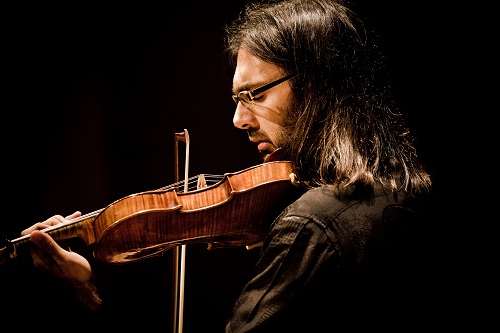
 Switzerland Lucerne Festival [1] – Brahms, Respighi: La Scala Philharmonic / Riccardo Chailly (conductor), Leonidas Kavakos (violin), Kultur- und Kongresszentrum Lucerne (KKL), 24.8.2017. (JR)
Switzerland Lucerne Festival [1] – Brahms, Respighi: La Scala Philharmonic / Riccardo Chailly (conductor), Leonidas Kavakos (violin), Kultur- und Kongresszentrum Lucerne (KKL), 24.8.2017. (JR)

Brahms – Violin Concerto
Respighi – Fountains of Rome; Pines of Rome
This exact concert will be repeated at the Proms, the commentator on Radio 3 today announcing that it promised to be “a real cracker”: and so, in Lucerne, it was.
This was, surprisingly, the debut at the Lucerne Festival for La Scala Philharmonic. The orchestra was founded by Claudio Abbado in 1982 with the aim of developing a symphonic repertoire to their operatic tradition, based on the model of the Vienna Philharmonic. The members are selected from the Opera House orchestra and augmented for large-scale works. Their current tour takes in, after the Albert Hall, the Edinburgh Festival, Berlin, Bucharest, Freiburg and Lugano. Next year you can catch them at the Barbican, Vienna, Budapest, Paris, Luxembourg, Istanbul, Vienna and Lucerne. Past conductors have included the likes of Abbado, Giulini, Muti, Bernstein, Sawallisch, Prêtre, Ozawa, Maazel, Mehta, Chung and Gergiev; currently they include Barenboim, Gatti and Harding. They are clearly out to make their presence felt on the orchestral stage and are close to the top step. Milan deserves a symphony orchestra of quality to match Rome’s first-rate Academy of Santa Cecilia Orchestra.
This particular concert was dedicated to the memory of Victor de Sabata, who died 50 years ago and who brought the Orchestra of La Scala to Lucerne in the 1940s – the programme including Respighi’s Pines of Rome.
Lucerne Festival’s theme this year is “Identity”, which is not really difficult to match to any composer and almost any programme. It’s all taken, by most critics and concert-goers, I suspect, with more than a pinch of salt.
Kavakos has the air of a mystic savant, with his long, lank black hair and black-rimmed glasses; he is not a bit pretentious or showy and his musical interpretations are classic, without affectation and yet audibly thoughtful; some may miss a degree of spontaneity. Each melodic line is perfectly shaped. Kavakos played with elegant poise, not a note out of place. He was mesmerising throughout, his softest notes were an absolute marvel, his urgent attack was arresting. In the warhorse Joachim cadenza, you could have heard a pin drop in this vast hall. The reading was slightly slower than might be usual, but he has fairly recently recorded this work with Chailly and the Leipzig Gewandhaus to great acclaim and they were clearly in close partnership. The orchestra accompanied without distraction although one must mention the radiant oboe playing to open the slow movement.
The Respighi gave the orchestra their chance to shine. The woodwind (in particular the clarinet in the “Janiculum” movement, evoking Delius or Vaughan Williams and the plangent cor anglais in the “Appian Way”) gave a fine performance across the board, Chailly built up shattering climaxes (assisted by the huge KKL organ) in the Triton fountain movement, in the eerie Catacombs and, of course, the depiction of Roman soldiers thundering along the Appian Way, leaving one to wonder whether there is a greater orchestral climax in any music. The double bass section were particularly impressive in the final movement (especially their energetic Leader) with their ominous bass tread. The extra brass section stood for their final peroration. The audience whooped with delight. If I had a quibble, some of the brass was smudged, some entries were uneven – they are not yet the equals of their colleagues in Vienna but nevertheless left a very fine impression.
Kavakos gave us a soothing Bach encore; the orchestra left us with music very much in their blood, Verdi’s dramatic overture to The Force of Destiny.
I do hope this impressive debut tempts the Festival’s management to invite them again before too long.
John Rhodes